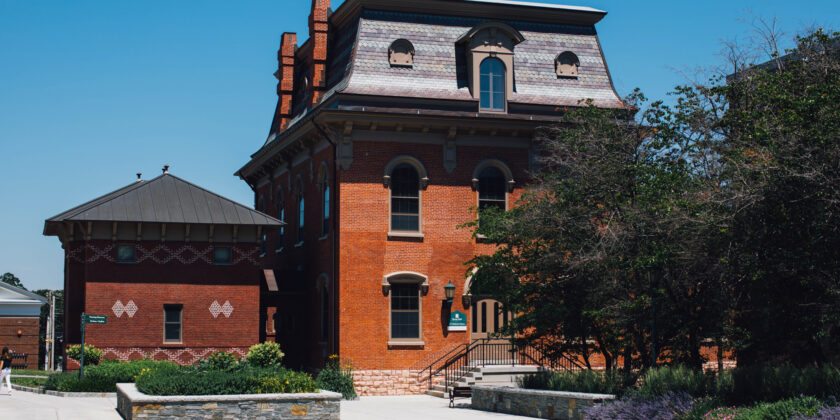Best Summer Programs & Activities for High School Students: Engineering
As part of your college application, extracurricular activities—including those over the summer— help demonstrate your intellectual curiosity and commitment to an area of study (typically, the one you might pursue in college).
But “programs” are not the only way to explore academic interests. You can join clubs at your school or locally, take free online classes via edX and Coursera, shadow, or intern (aka volunteer for most students)—there are tons of options ranging from super formal (and pricey) to those as simple as reading in your free time.
The following are some of our favorites for students interested in exploring engineering.
Lincoln Laboratory Radar Introduction for Student Engineers (LLRISE)
The LLRISE program is a two-week summer institute for rising seniors that teaches students how to build small radar systems. The project-based enrichment program challenges students to build a Doppler and range radar.
COSMOS UCSD, US Irvine, UC Santa Cruz, UC Davis
The COSMOS program is a four-week residential program designed by the UC schools. Each campus focuses on different subject areas, all admitting their own “cluster” of students. The courses are taught by UC faculty and researchers. Students choose from nine different clusters, which include engineering design, biodiesel from renewable sources, tissue engineering and regenerative medicine, and more.
MIT Beaver Works Summer Institute
The MIT Beaver Works Summer Institute (BWSI) is a rigorous, world-class STEM program for talented students who will be entering their senior year in high school. The four-week program teaches STEM skills through project-based, workshop-style courses. BWSI began in 2016 with a single course offered to 46 students, a mix of local daytime students and out of-state residential students. In this course, RACECAR (Rapid Autonomous Complex Environment Competing Ackermann steering), students programmed small robotic cars to autonomously navigate a racetrack. It is a 4-week residential program for rising high school seniors and the program is free.
National Institute of Standards and Technology (NIST) Summer High School Intern Program Research
NIST research is subdivided into six organizational NIST laboratories that conduct research in a wide variety of physical and engineering sciences. The labs respond to industry needs for measurement methods, tools, data, and technology. Six laboratories participate in the SHIP program.
- Communications Technology Laboratory (CTL)
- Engineering Laboratory (EL)
- Information Technology Laboratory (ITL)
- Material Measurement Laboratory (MML)
- NIST Center for Neutron Research (NCNR)
- Physical Measurement Laboratory (PML)
Due to the multi-disciplinary nature of NIST’s research, students should look through the different websites above to discover a best-fit project area. The following information describes the types of research performed by each laboratory. See research projects done in previous years.
MIT Women’s Technology Program (WTP)
The MIT Women’s Technology Program (WTP) is a rigorous four-week summer academic experience to introduce high school students to engineering through hands-on classes, labs, and team-based projects in the summer after 11th grade.
WTP is designed for students who are excited about learning, have demonstrated their ability to excel at math and science in their high school classes, and who have no prior background (or very little) in engineering or computer science, with few opportunities to explore these fields.
WTP is a women-focused, collaborative community aimed at empowering students from groups historically underrepresented and underserved in engineering. We especially encourage students to apply who will be the first family member to attend college, who come from high schools with limited access to STEM classes and activities, or who are African American, Hispanic, or Native American.
Minority Introduction to Engineering and Science (MITES)
The MITES program is a six-week long residential program geared towards rising seniors from underrepresented or underserved communities. The program aims to provide the skills and knowledge necessary for pursuing a career in the STEM fields. Students take one math course, one life sciences course, one physics course, one humanities course and an elective course. Placement is determined by diagnostic tests that are administered to all students during the orientation period of the program.
A 10-day program that exposes students to fundamental AI concepts and guides them to build a socially impactful AI project. The program runs as a 10-session (40-hour) project-based Bootcamp.
CATALYST Academy is a one-week residential program for rising high school juniors and seniors from underrepresented backgrounds who desire to learn about engineering and careers within an interactive milieu.
Google Computer Science Institute (Summer Before COLLEGE!)
Google’s Computer Science Summer Institute (CSSI) is a three-week introduction to computer science (CS) for graduating high school seniors with a passion for technology — especially students from historically underrepresented groups in the field. CSSI is not your average summer camp. It’s an intensive, interactive, hands-on, and fun program that seeks to inspire the tech leaders and innovators of tomorrow by supporting the study of computer science, software engineering, and other closely-related subjects. It is a 3-week program and it is free.
*Stay in the know! Subscribe*
